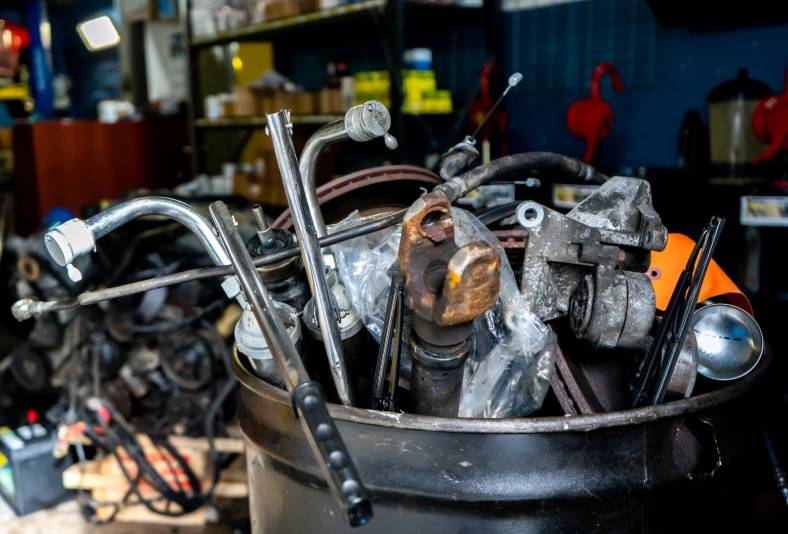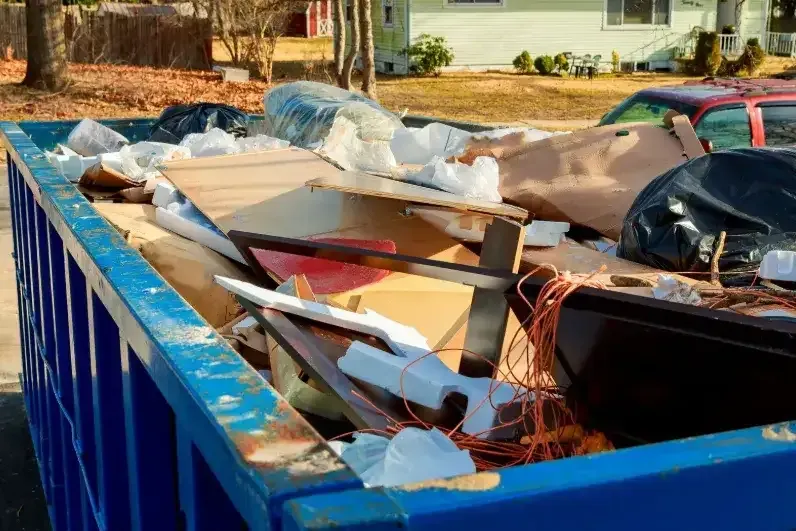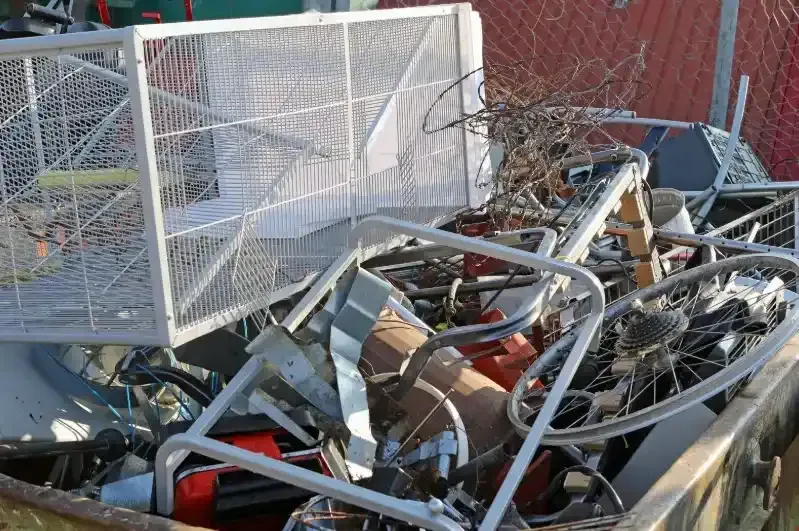How Scrap Metal Recycling Contributes to a Circular Economy
In recent years, the significance of recycling, particularly scrap metal recycling, has grown tremendously as we shift towards a more sustainable, resource-efficient society. Recycling scrap metal is integral to the circular economy, which prioritizes the reuse, repurposing, and recycling of materials to minimize waste and reduce the demand for raw resources. Unlike the traditional linear economy—where products are made, used, and then discarded—the circular economy aims to close the loop, promoting a continuous cycle of reuse, repair, and recycling.
This shift not only reduces the strain on natural resources but also helps lower energy consumption, minimize waste, and decrease environmental pollution. Scrap metal recycling is a key element in this transition, as metals like steel, aluminum, and copper can be endlessly recycled without losing quality. The economic benefits are also significant, with scrap metal recycling supporting local economies, creating jobs, and driving innovation in green industries. Ultimately, recycling scrap metal is a crucial step toward a more sustainable and efficient global economy.
The Role of Scrap Metal Recycling in Resource Conservation
One of the most notable contributions of scrap metal recycling to a circular economy is its ability to conserve valuable resources. Metals such as aluminum, steel, copper, and iron are used in a wide range of products, from automobiles and appliances to construction materials and electronics. Mining and extracting raw metal ore is a resource-intensive and environmentally destructive process. By recycling scrap metal, we reduce the need for new mining operations, which often lead to habitat destruction, water pollution, and greenhouse gas emissions.
Recycling scrap metal significantly reduces the energy required to process metal products. For example, recycling aluminum uses 95% less energy than producing new aluminum from bauxite ore. This reduction in energy consumption translates directly into lower carbon emissions, contributing to efforts to combat climate change. Additionally, the recycling process helps conserve natural resources like water and land, as the need for mining operations decreases.

Economic Impact of Scrap Metal Recycling
Scrap metal recycling not only benefits the environment but also plays a critical role in strengthening local economies. The recycling industry is a significant source of employment, providing jobs in sorting, processing, and selling recycled metal. It also creates value by enabling the reuse of raw materials in new products. By recovering and reintroducing metals into the economy, the cost of manufacturing goods is reduced, leading to more affordable products for consumers.
Furthermore, the value of scrap metal is often tied to market demand, making it a lucrative business opportunity for those involved in recycling. The global scrap metal market is worth billions of dollars, and companies can earn substantial revenue from the collection and sale of scrap metal. This creates a sustainable, economically viable business model that incentivizes further recycling and resource conservation.
Environmental Benefits of Scrap Metal Recycling
The environmental benefits of recycling scrap metal are far-reaching. Beyond conserving raw materials and reducing energy consumption, recycling metal reduces the volume of waste sent to landfills. Metals can take hundreds or even thousands of years to degrade in landfills, so recycling them instead helps keep valuable resources in circulation. Moreover, scrap metal recycling reduces the need for landfills and incineration, both of which have significant environmental impacts. Landfills occupy large areas of land and can lead to soil and groundwater contamination, while incineration releases toxic pollutants into the air.
By diverting metals from these waste streams, recycling plays a crucial role in mitigating pollution. In addition to reducing the negative environmental impact of waste disposal, the recycling process generates fewer pollutants than the extraction and production of virgin metals. This means that less harmful emissions are released into the atmosphere, improving air quality and reducing the overall ecological footprint of metal production.
Enhancing Industrial Efficiency Through Recycling
In a circular economy, the concept of product life extension and closed-loop systems is fundamental. Recycling scrap metal supports these ideas by creating a closed-loop cycle in which the materials used in products are continuously reused. Instead of relying on new raw materials, industries can rely on the abundant supply of recycled scrap metal to meet their production needs. manufacturing, and electronics. By using recycled metals in construction materials, manufacturers can lower the cost of building projects while maintaining the strength and durability of the materials.
Similarly, the automotive industry uses recycled steel and aluminum to produce vehicles, reducing manufacturing costs and supporting more sustainable production practices. In the electronics industry, the importance of recycling metals like copper and gold cannot be overstated. Electronics waste (e-waste) has become one of the largest growing waste streams globally, and much of the valuable metal content in e-waste can be recovered through proper recycling. This helps reduce the demand for new mining operations and ensures that valuable metals are reused, rather than lost in landfills.
The Social Impact of Scrap Metal Recycling
Scrap metal recycling also has a social dimension. By encouraging recycling at the local level, communities can develop stronger, more sustainable economies. Recycling programs create jobs, generate revenue, and contribute to the overall well-being of communities. It also fosters a sense of shared responsibility for the environment, as individuals and businesses take ownership of their role in creating a circular economy.
As awareness of the environmental and economic benefits of recycling grows, more people are becoming involved in scrap metal recycling programs. Local recycling initiatives help reduce waste, promote sustainable practices, and build a culture of conservation. These efforts not only support the circular economy but also contribute to the overall sustainability of society by empowering individuals to participate in the recycling process.
The Future of Scrap Metal Recycling in a Circular Economy
The future of scrap metal recycling looks promising as more industries and individuals embrace the concept of the circular economy. Technological advances in recycling processes, such as automated sorting and more efficient methods for recovering precious metals from e-waste, will further enhance the efficiency and effectiveness of recycling operations. As demand for sustainable products continues to rise, the role of recycling in the supply chain will only become more significant. Governments around the world are beginning to recognize the importance of recycling and are implementing policies to encourage more sustainable practices.
From incentivizing recycling through tax breaks to enacting regulations that require a percentage of recycled material in new products, governments are playing a key role in driving the transition to a circular economy. With the continued growth of the recycling industry, there is hope for a future where materials like scrap metal are no longer seen as waste but as valuable resources to be reused and recycled. As individuals, businesses, and governments collaborate to create a more sustainable world, scrap metal recycling will continue to play a crucial role in achieving a circular economy.
Supporting Sustainable Manufacturing Practices
Scrap metal recycling is not only beneficial for the environment but also supports the growing demand for sustainable manufacturing. As industries face increasing pressure from both consumers and regulators to adopt more sustainable practices, recycling helps meet these expectations. Manufacturers are under scrutiny to reduce their environmental impact while producing high-quality products. Recycled scrap metal can be used in the production of new goods without compromising quality. Steel, for example, can be recycled repeatedly without losing its strength, making it an ideal material for sustainable manufacturing.
Similarly, the recycling of aluminum, copper, and other metals allows manufacturers to maintain the high standards of durability and performance that consumers expect, while simultaneously minimizing their environmental impact. The adoption of sustainable manufacturing practices through scrap metal recycling supports the overall goals of the circular economy. By reintroducing materials into the production cycle, businesses can reduce their reliance on virgin resources, lower manufacturing costs, and help preserve the planet's natural resources for future generations.
The Benefits of Local Recycling Programs for Scrap Metal
Local recycling programs play a vital role in driving the success of scrap metal recycling within communities. By providing convenient drop-off points and collection services, municipalities make it easier for individuals and businesses to recycle scrap metal. These programs help reduce the amount of metal waste that ends up in landfills, while also ensuring that valuable materials are diverted back into the production cycle.
Local recycling programs also create a direct economic benefit for communities. They generate jobs in collection, sorting, and processing, while also providing revenue for municipalities through the sale of recycled metals. Additionally, many local programs partner with private recycling companies, further boosting the local economy by supporting small businesses and fostering competition.
Conclusion
Scrap metal recycling is a cornerstone of the circular economy, offering significant benefits that extend beyond just environmental protection. By recycling metals, we can reduce the need for resource-intensive mining, which conserves precious natural resources and reduces harmful environmental impacts like habitat destruction and pollution. The process also conserves energy, as recycling metals requires significantly less energy than extracting and processing raw materials. In addition, scrap metal recycling reduces waste by diverting metal from landfills and repurposing it for new products. This not only supports the environment but also fosters a more sustainable model of production and consumption. Furthermore, the economic advantages of recycling are substantial, with the process creating jobs, stimulating local economies, and promoting the growth of green industries.
As recycling technologies continue to evolve and become more widespread, the role of scrap metal recycling in supporting a circular economy will only become more critical. The more we embrace these practices, the greater the impact we can have on sustainability, reducing waste, and conserving valuable resources. If you're interested in contributing to this movement and need expert junk removal services, contact Lasso & Load Junk Removal today at 404-227-2017 or via email at Lauren.renwickk@gmail.com. We’re here to help you make a difference for both your home and the planet.









